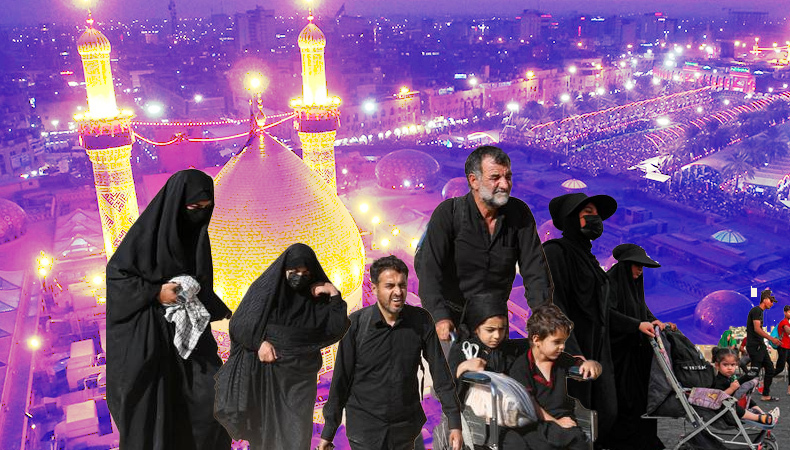Arbaeen Pilgrimage Becomes A Crowd And Business Puller For Karbala

Iraq’s Karbala city has found an innovative way to handle its money crisis. The Arbaeen pilgrimage is helping make up the money for the inhabitants. The huge festival has become a definite crowd puller. Iraqi and Iranian Shiite pilgrims can be seen walking from Najaf to Karbala; all to take part in the Arbaeen religious festival that happens once a year.
Millions of Iraqi pilgrims walk from Shiite-dominated areas in the central and southern parts of the country as they head to Karbala to visit the gold-domed shrines of Imam Hussein and his brother Imam Abbas. Foreign pilgrims, mainly Iranians are popular in these journeys.
Now the spell that had cast a dark shadow over the economics of the city due to social unrest and Covid-19 pandemic has been lifted. Iraqis are also welcoming tourists to come and discover the city ruins and indulge in eco-tourism. It is all towards developing a new and positive image about the country.
Read more : US Suggests Third Party Mediation Between Kurdistan Region And Iraqi Government
The number of people who apply for attendance is difficult to judge. But sources claim that millions do, as despite restrictions last year, some 80,000 could gain entry. This was all after the country had eased off travelling restrictions at Covid-19 times.
This year, no limits have been applied. Occupancy rates have jumped in all 1200 hotels to 100 percent. Its raining moolah for the tourism industry. About 2.8 million foreign pilgrims of different nationalities entered Iraq between July 31 and September 12, the Commission of Border Crossing Points. The number of Iranian pilgrims is expected to reach five million, with Karbala set for a record turnout of more than 20 million this year. The climax of the pilgrimage is on Saturday.
The high number of Iranian pilgrims has prompted Tehran to shut its border crossings from time to time to control the flow. Iran has also advised its citizens not to stay for long in the Iraq as it seeks to ease pressure at border posts.
To cope with the rising numbers, provincial authorities in Karbala have opened schools, mosques and unfinished buildings to accommodate pilgrims while some families have offered to host them in their own homes.




